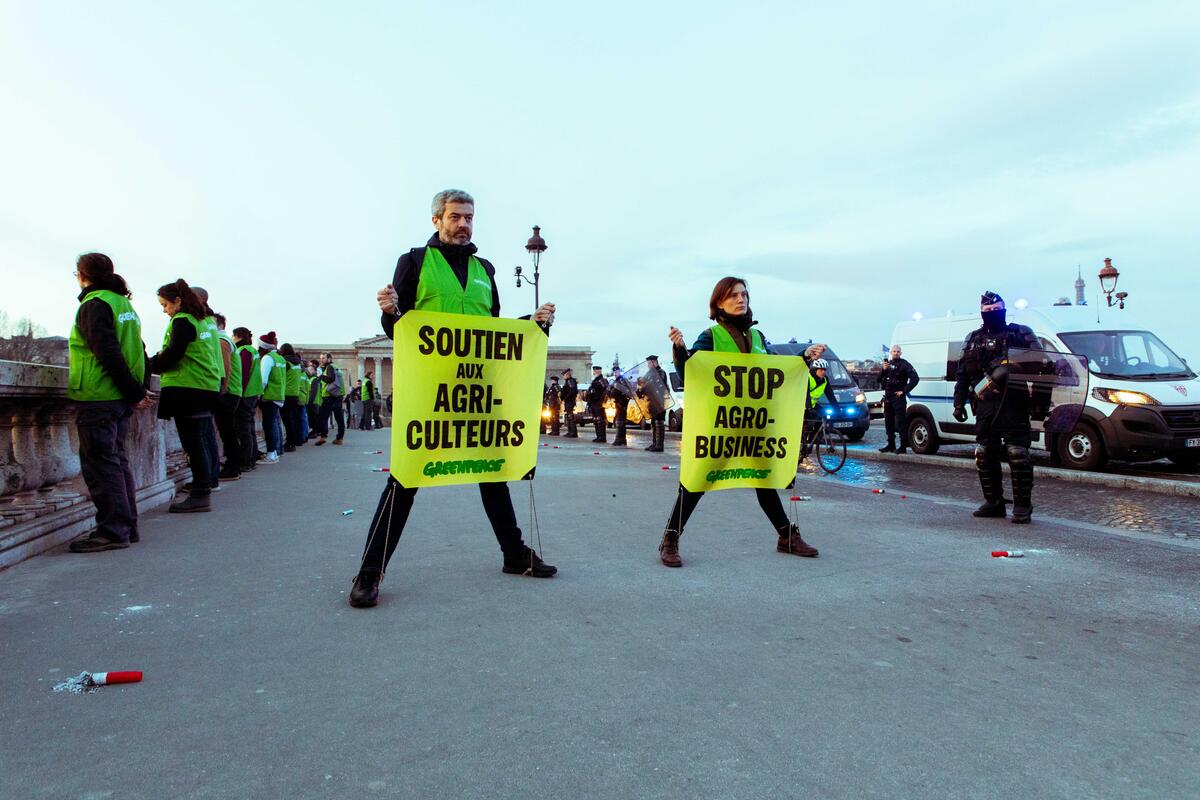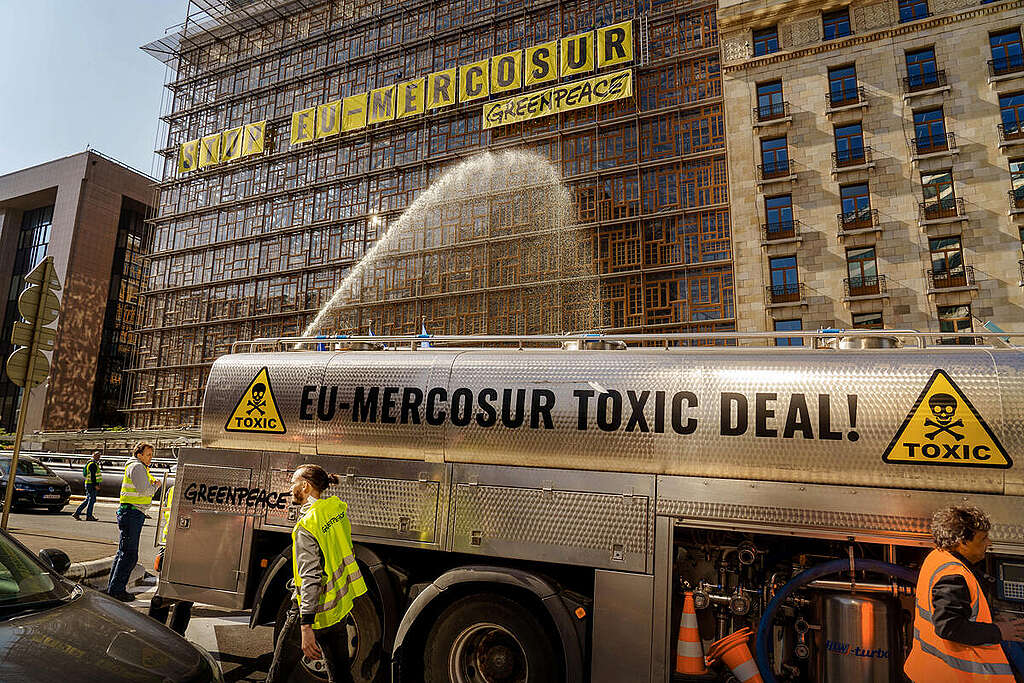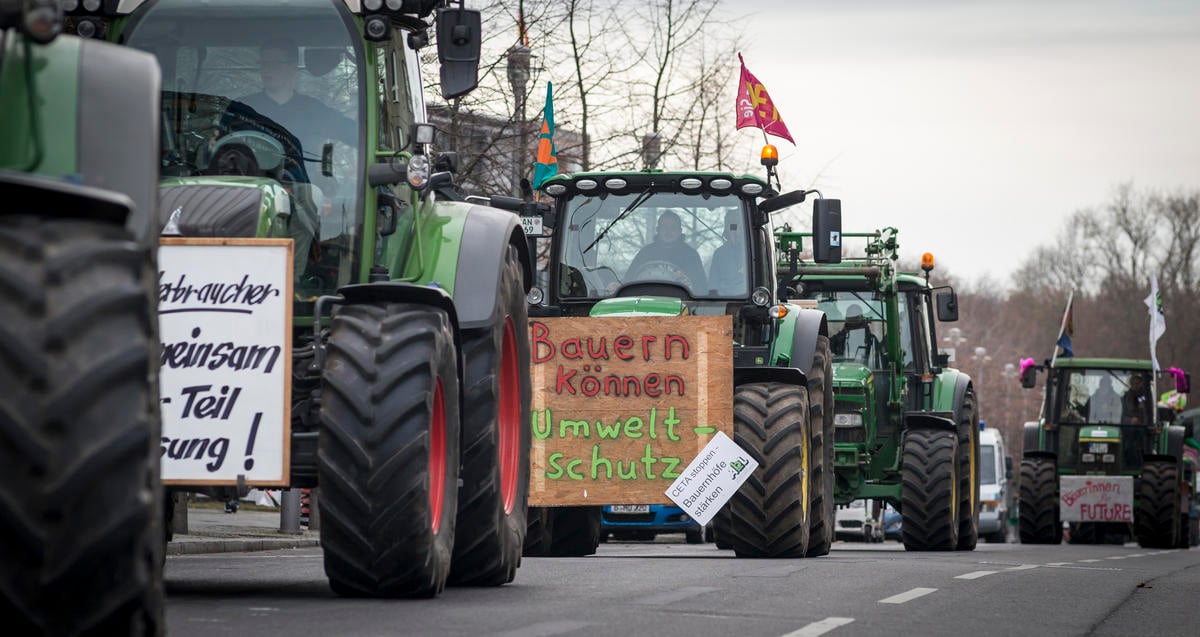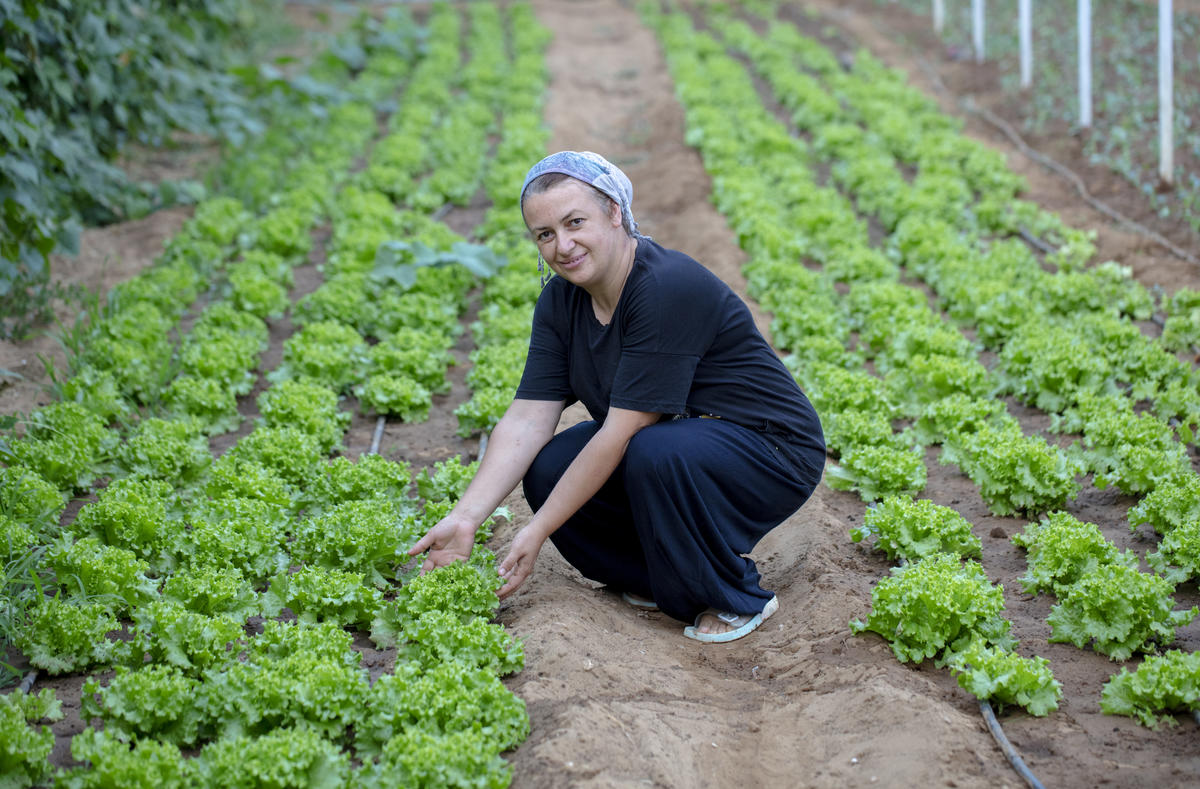Farmers across the world are struggling. The global, industrialised food systems have forced many farms, especially smaller ones, out of business. But when politicians and the big agriculture lobbies blame green legislation, they are not only misleading farmers, they are risking their survival.
Europe is the current hot spot for farmer protests at the moment, but farmers' disgruntlement is much more global than that. Earlier this week, police in northern India have fired tear gas to prevent thousands of protesting farmers demanding minimum crop prices from marching on Delhi. The reasons for the farmers' despair may vary from country to country, but very often the protesters, and more specifically the biggest lobbies leading the protests, point to excessive environmental protection regulation.

Farmers are facing a real crisis
Farmers' anger is legitimate and we share it. In just 15 years, the EU has lost almost 40% of its farmers, almost exclusively small and medium ones, who have either gone out of business or been bought up by their increasingly large competitors. Similar trends can be observed in other parts of the world: small and medium farms "accounted for nearly half of all agricultural production in the U.S. in the 1990s, whereas today they represent less than a quarter.
The problem is the way industrial agriculture, and more broadly the global food system, is organised. It's a system that rewards with subsidies harmful farming practices that damages people's health, fuels the climate crisis, destroys nature and drives inequality by excluding smallholder farmers. Farmers are at the mercy of bigger corporate players up the food chain that impose low prices on the farmers' products whilst at the same squeezing farmers at the source by raising the price of inputs, such as hybrid seeds, pesticides, fertilisers and animal drugs. This pushes smaller producers out of the market, as only factory farms can survive selling at low prices while bearing higher input costs. Big Ag's bullying message to family businesses is: get big or get out!
At the same time, exploitative free trade agreements pushed by many governments like the EU Mercosur agreement add to the pressure, entrenching an extractive system that expands corporate profits and power to the detriment of workers, communities, family farmers and the environment, particularly in the global South.
As the weakest link in the colossal machinery that produces our food, farmers are right to be concerned.

Farmers are plagued by the impacts of the climate crisis…
Human activity has triggered a climate and biodiversity crisis, with global food systems in particular being the main driver of biodiversity loss. Alongside conflicts and economic shocks, extreme weather events (and associated disturbed agricultural production) are the primary drivers of world hunger. This is poised to only get worse as the climate crisis intensifies. A single climate disaster could crush small and medium-sized farms that are already struggling to stay afloat.
…and they are being betrayed by lobby groups and politicians who claim to represent them
Instead of welcoming measures to improve ecosystem services on which farmers largely depend, certain politicians and the big agriculture lobby firms have made nature protection and climate policies an easy scapegoat. In Europe, far-right and conservative parties in particular have been criticised for their attempts to instrumentalise farmers' discontent and point the finger at environmental regulation. This has led to France relaxing its plans on pesticide phase-out and the EU lowering agricultural targets in its 2040 climate plans and scrapping pesticide plans.
But sending angry farmers the message that green rules are to blame, while supporting a system that only works for a small percentage of giant market players, is nothing short of betrayal.

The most powerful farming lobbies like Europe's COPA/COGECA are often the driving force behind which rules are to be strengthened and which are to be weakened. They're the ones with the political influence. The problem is that despite their claims to represent all farmers, they have often taken positions that defend the interests of a minority of farmers: the largest and most powerful ones who thrive in a strikingly unfair food system.
In other parts of the world, conservative governments whose policies are shaped by agribusiness lobbies are leading the charge. In Aotearoa (New Zealand) for example, the newly elected Government plans to strip back environmental regulations in favour of Big Dairy's interest, doing a disservice to ecological farmers. No regulations hold the biggest polluters accountable for the massive pollution and environmental degradation they cause, and not enough incentives or rewards compensate farmers for adopting sustainable practices.
Many politicians continue to support the largest agribusinesses and frame the crisis as "farmers versus nature". It's a false dichotomy that tragically hurts farmers. It deliberately shifts the focus away from the root causes of the problems farmers face and makes their situation worse until only the biggest farms are left. Farmers and nature are allies – it is markets, subsidies and lack of proper regulation that force farmers to make a desperate choice between industrial production and bankruptcy.
Farmers must be encouraged and rewarded for producing food in ways that work with nature, and for doing so for generations to come.

Marco Contiero is Policy Director on agriculture at the Greenpeace European Unit. Sophie Nodzenski is a Food and Agriculture Campaigner at Greenpeace International.






